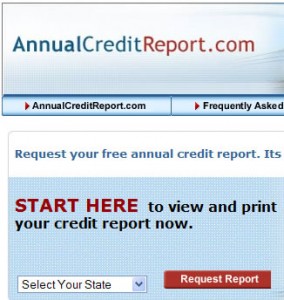Alabama Credit Report Attorney
Did you know that approximately 76% of all credit reports contain errors? When credit bureaus report false account information, it can damage your credit rating and cost you thousands in higher interest rates, credit denials, and lost opportunities. Federal law requires that credit reporting agencies report accurately, but they often fail to do so. If your credit is being dragged down by false information, we can help. But there is a strict process that you must follow if you want to be sure that your report gets cleaned up quickly: you must send the credit bureaus a detailed, but simple dispute which describes the error and what steps they must take to fix it. We can help you with that. In my book about getting out of debt, I devote an entire chapter to fixing your credit.

Here is the simple version:
1. Get your Report. You can get a free one at www.annualcreditreport.com, or you can buy one from either of the major credit bureaus. If you buy one directly, do not buy it online. Call their number and request one. If you’ve applied for credit and been denied, you are entitled to a free copy of the report upon which your denial was based.
Whenever you have applied for credit and been denied, the creditor who denied your application is required to send you an adverse action notice. The adverse action notice must explain why you were denied, and if the denial was based at least in part on a credit report, they must identify the consumer reporting agency that provided the report. You can write that credit reporting agency and demand a copy of the report upon which your denial was based. If you request a credit report after receiving an adverse action notice, you should send a copy of the adverse action notice with your letter requesting a copy of the credit report. The best way to obtain one is to get it directly from whoever denied you credit. So if you tried to buy a car and were told that your TransUnion report showed that your credit was too bad, you should ask them to print you a copy.
2. Identify the Problem(s). The Fair Credit Reporting Act requires consumer reporting agencies to follow reasonable procedures to ensure maximum possible accuracy, and if their report has inaccurate information about you, then you have the right to require them to fix it. So the first thing you need to do is identify each inaccuracy. There are lots of different types of errors, but the most important ones are the negative accounts, because they have the most dangerous effect on your ability to obtain credit later. Some key problem areas:
Balances – Each account should have a balance attached to it. If you don’t owe the money anymore because of settlement, bankruptcy, or because you never owed the money to begin with, then the balance should be zero.
Dates – The date of last payment is very important, because credit reporting agencies cannot report accounts that are more than 7 years old. Some creditors and debt collectors have been known to “re-age” accounts to keep them on your record. If you know that you haven’t made a payment on a particular account in 8 years, then the account should be deleted.
Status – The account status should be correct. If an account was settled, it should say so. If you were sued and beat the lawsuit, it should say so.
Public records – These can stick around for 10 years, so its important that they be accurate. Judgments that have been satisfied or vacated should be reported as such. Your husband’s bankruptcy shouldn’t be on your report.
Inquiries – This is a list of all the people or companies that have pulled your credit report within the past 2 years. If you don’t recognize them, you can write a letter to the company that pulled the report and ask them why they were looking into your credit. Unauthorized inquiries should be deleted.
3. Write a Dispute letter – Not a phone call or online dispute, a written letter that you can keep a copy of.
To see an Example FCRA Dispute Letter, CLICK HERE –>Written Credit Report Dispute
In your letter, tell them what they’re doing wrong, and be sure to identify the creditor, the account number, and the mistake. For instance, if you see a collection account for $900, and you know that you paid that debt off, you should write them a letter stating that the debt has been paid and that no money is owed. Mail the letter Certified Mail, Return Receipt Requested – Trust me, the $6.49 postage charge is well worth it.
3. If they don’t fix it, call a lawyer.
They have 30 days to fix it. If they don’t fix it or delete it, they are liable to you for whatever damage they’ve caused. The damage could be: lost credit opportunity; transportation or rent costs (if the denial prevented you from being able to obtain more affordable housing or transportation); higher interest rates; etc. If a false credit report has caused you these damages, you should be compensated. Moreover, the Fair Credit Reporting Act requires the credit bureau or the creditor to pay your attorneys’ fees if you win, so if you have a case against a credit bureau or furnisher of information, we don’t charge you a dime up front to handle these cases.
I am attorney Judson E. Crump, and I represent people whose credit has been wrongfully damaged by the credit bureaus or their creditors. If you or someone you know has been struggling to fix their credit, call me at 251.272.9148 for a consultation. We’ll make the credit bureaus fix their mistakes or pay for the damage they’ve caused.